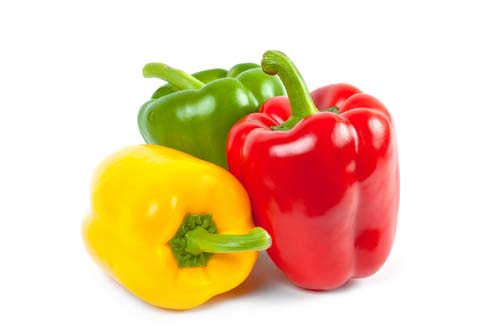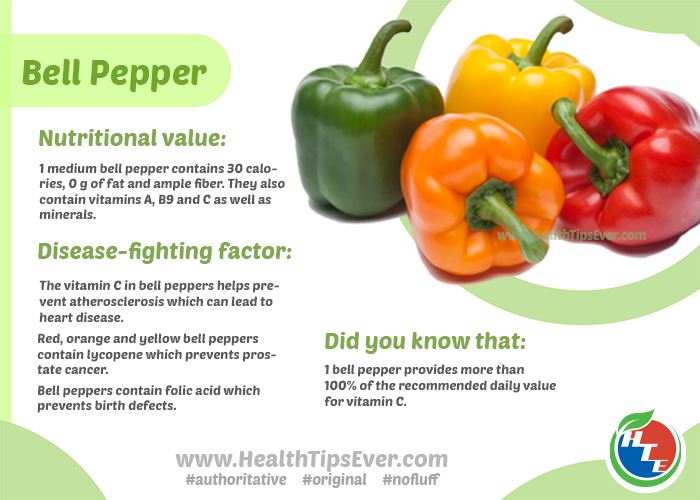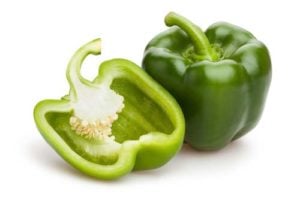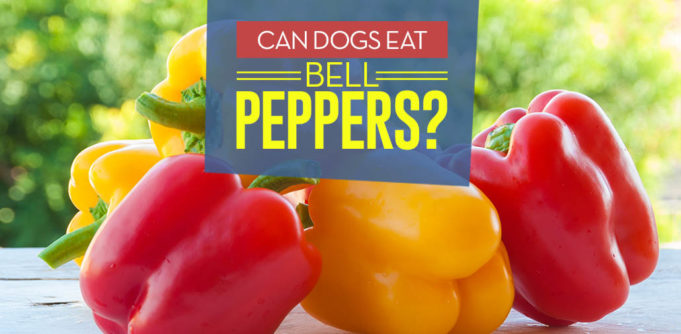Vegetables are our nutritional friends, and bell peppers are chock full of vitamins. But can dogs eat bell peppers as well, and are bell peppers for dogs safe to consume? What are the health benefits of giving bell peppers to dogs, and are there any side effects? Let's take a closer look.
If you've been wondering, “can I give my dog bell peppers,” the answer is YES – dogs can eat bell peppers and a bell pepper is not toxic to a dog, provided you only feed it in moderation and as part of an otherwise well-balanced, healthy diet.
More than that, bell peppers are extremely rich in vitamins and minerals, many of which can transfer well into a dog's diet and benefit canine's health. With that said, there are some safety precautions to take if you want to feed bell peppers to your dog.
Table of Contents
ALSO READ: Can Dogs Eat Potatoes?
What are bell peppers?
The bell pepper, also known as capsicum or sweet pepper, is a fruit related to tomatoes and chili peppers and belonging to the nightshade family of Capsicum annuum species. In culinary context, bell peppers are considered a vegetable.
Bell peppers are highly water-dense and are often found in colors yellow, orange, red, or green. They can be eaten either raw or cooked, and they are very low in calories.
This is what fresh raw bell peppers look like:

Research has shown that bell peppers are extremely powerful in terms of nutrition, particularly levels of vitamins and minerals they provide. I'll give you a breakdown below.
But can dogs eat bell peppers and reap the same benefits as humans do? Unfortunately, there's been little to no research done on the effects of feeding bell peppers to dogs, but drawing from previous studies on how similar nutrients and foods affect canines, we can assume several potential health benefits and side effects from bell peppers for dogs.
Let's dig deeper into feeding bell peppers to dogs and what this means for them.
READ: Can Dogs Eat Almonds?
Bell Peppers for Dogs 101
Can Dogs Eat Bell Peppers?
 So can dogs eat bell peppers with no issues? Yes, most definitely – bell peppers for dogs are safe to consume, as long as you feed them in moderation.
So can dogs eat bell peppers with no issues? Yes, most definitely – bell peppers for dogs are safe to consume, as long as you feed them in moderation.
Whether you feed your dog raw or cooked bell peppers, remember to always wash them thoroughly. There are benefits from either preparation method, so you can mix it up.
Bell peppers are very nutritious, and here's a list of their most important nutrients:
- Vitamin A (beta carotene)
- Vitamin B
- Vitamin C
- Vitamin E
- Vitamin K
- Capsaicin
- Phosphorous
- Magnesium
- Manganese
- Carotenoids
- Fiber
On top of that, ripe bell peppers contain an abundance of other healthy compounds and antioxidants (particularly carotenoids):
- Capsanthin, which may help protect against cancer (1)
- Luteolin, extremely beneficial for many body functions (2)
- Quercetin, which helps in fighting with many chronic diseases (3, 4)
- Violaxanthin, a very powerful antioxidant (5)
- Lutein, particularly useful for eye health (6)
Bell peppers have so many minerals and vitamins that feeding them as a treat to your dog in moderation is a great way to make your canine's diet healthier. Moreover, dogs are most likely to absorb the many vitamins from this powerful fruit/vegetable.
Research on bell peppers in people's diet has revealed how this vegetable can improve health and help fight many illnesses. Here's a quick science-based breakdown:
- Bell peppers may improve eye health (7, 8)
- Bell peppers protect eyes from oxidative damage (9, 10)
- Bell peppers may prevent macular degeneration and cataracts (11, 12, 13)
- Bell peppers improve iron absorption from other foods (14, 15)
- Bell peppers reduce inflammation and decrease cancer risk (16, 17, 18)
It's easy to see that adding bell peppers to your own, as well as to your dog's diet, may indeed be a good idea. However, many of the above health benefits of bell peppers for dogs may or may not translate well and more research is needed with canines.
In the meantime, here are some of the potential health benefits of bell peppers for dogs.
READ ALSO: Can Dogs Eat Watermelons?
9 Potential Benefits of Bell Peppers for Dogs
 Note that while bell peppers are very nutritious and have been well-studied for their ability to improve eye health, reduce inflammation and prevent cancer, none of this has been done with studies on dogs. Therefore, we can only make educated guesses here.
Note that while bell peppers are very nutritious and have been well-studied for their ability to improve eye health, reduce inflammation and prevent cancer, none of this has been done with studies on dogs. Therefore, we can only make educated guesses here.
Nevertheless, here are potential benefits from feeding bell pepper to dogs:
1. Beta-carotene in Vitamin A promotes dog's eye health.
Bell peppers are well-known for their ability to strengthen eye health and prevent damage to eyes, especially with aging. The same may apply to dogs.
Vitamin A abundant in bell peppers strengthens a dog’s vision and promotes overall eye health. This vitamin may also help keep your dog’s coat, skin, and bones healthy, too.
2. The Vitamin B-complex in bell peppers promotes healthy body functions.
Vitamin B-complex in sweet peppers, which encompasses Vitamins B1, B2, B3, and B6, helps to produce neurotransmitters, hormones, and proteins in the dog's body. It is also integral in the prevention of anemia and the metabolism of amino acids.
3. Bell peppers are perfect cancer prevention food.
Bell peppers are an incredible source of antioxidants, in particular, ellagic acid and Vitamin C which may have cancer-shielding properties. As the above studies with humans have shown, consuming bell peppers will reduce inflammation and risk of cancer.
Vitamin C in bell peppers combats dog's degenerative conditions, promotes cartilage and collagen synthesis, and strengthens a dog’s overall immune system. Research also shown how plenty of bell peppers help with iron absorption and preventing anemia.
4. Vitamin E helps build strong and healthy cells in dogs.
Vitamin E is another useful antioxidant found in bell peppers that positively impacts fat metabolism and the formation of the membranes that surround cells in the dog's body. It is also responsible for the respiration of cells and other vital body functions.
5. The Vitamin K in bell peppers helps to strengthen bones in dogs.
Vitamin K is a vitamin necessary for the construction of strong bones in the dog's body. There's no research behind this but we can assume that adding bell peppers to a dog's diet may provide them with additional Vitamin K which ultimately benefits their bones.
6. Phosphorous helps your dog develop a strong skeletal system.
There's an average amount of phosphorous in sweet peppers, which works with calcium to help your dog’s skeletal system maintain proper growth and structure. Large amounts of phosphorous are not recommended for certain ages of the dog or health conditions.
7. Magnesium assists in important dog's body development.
Magnesium works as a regulator of many other antioxidants, vitamins and minerals in the dog's body. It helps the body with absorbing all the vitamins and minerals from foods more efficiently and promotes bone growth and protein assimilation.
8. The manganese may improve weight loss and muscle development.
There are average amounts of manganese mineral found in bell peppers. Manganese keeps canine body's metabolic rate at a higher level which increases fat burn and helps with weight loss as well as muscle development for dogs.
Manganese is also essential for healthy ligament development, reproductive processes, the production of energy, the creation of fatty acids, and the proper usage of carbohydrates and proteins in the body.
9. The high fiber in bell peppers assists in healthy digestion.
Just like most other vegetables, bell peppers contain plenty of fiber.
Fiber helps to improve digestion in dogs, regulate bowel movements, and encourages weight loss because it slows the digestive process down. Additionally, fiber helps relieve constipation and flatulence, and is an important part of any dog's diet.

“So, can I give my dog bell peppers?”
Yes, dogs can eat bell peppers without any issues and bell peppers are not toxic to dogs. However, you must only give bell peppers to dogs in moderation and as an occasional treat rather than make it their main diet.
If you're into cooking for your dog, then bell peppers can make a great addition to most homemade dog food recipes by providing flavor and aroma that most dogs love, as well as increasing your homemade dish's nutritional content.
Red, green or yellow bell peppers?
Even though dogs can eat bell peppers of any color, and all of them provide similar amounts of nutrition and calories, it's often recommended to feed your dog red bell peppers. A red bell pepper will be extra ripe and contain slightly more nutrients.
The Bottom Line: Bell peppers for dogs are an appropriate treat and are very healthy. Make sure to feed as part of an otherwise well-balance and healthy diet.
1 Potential Side Effect of Bell Peppers for Dogs
When fed in moderation, dogs can eat bell peppers with no side effects. So the only thing you must watch out for is to not overfeed your pet on bell peppers and only give them as a treat or add them into a homemade dog food meal.
1. Gastrointestinal upset in dogs.
Feeding too many bell peppers to your dog can result in stomach issues such as diarrhea, constipation, stomach discomfort, bloating, and pain. As with most other fruits and vegetables, this is to be expected since dogs are not used to eating bell peppers.
RELATED: Can Dogs Eat Raspberries?
More on Bell Peppers for Dogs
3 Safety Precautions
 Even though bell peppers for dogs are safe to consume, there are a few things to keep in mind if you're thinking about adding them to your dog's diet or giving them as a treat.
Even though bell peppers for dogs are safe to consume, there are a few things to keep in mind if you're thinking about adding them to your dog's diet or giving them as a treat.
1. Exterior skin can be tough on your dog’s digestive system.
The bell pepper’s tough exterior skin may be difficult for some dogs to chew and digest. Cooking or pureeing the bell pepper before feeding it to your dog will eliminate this concern.
2. Remove core and seeds before feeding.
To ensure that bell peppers do not become a choking hazards, always remove the bell pepper’s core and bell pepper seeds before feeding them to your dog.
3. Feed plain bell peppers only.
Cooked bell peppers are fine to dogs. However, feeding your dog bell peppers that have been cooked with garlic or onions will cause health problems because onions and garlic are poisonous to dogs and ingestion may result in stomach upset or red blood cell damage.
Always feed your dog plain bell peppers – whether cooked or raw.
Summary:
Can Dogs Eat Bell Peppers?
 In conclusion, dogs can eat bell peppers without any issues as long as they are bed in moderation and as part of a healthy, well-balanced canine diet.
In conclusion, dogs can eat bell peppers without any issues as long as they are bed in moderation and as part of a healthy, well-balanced canine diet.
Bell peppers are not only very safe for dogs to consume but are actually a highly nutritious vegetable/fruit treat with several potential health benefits and little risk.
The main beneficial qualities of bell peppers are the ability to strengthen multiple body systems in dogs, promote eye and digestive health, and help fight diseases and cancers.
References
READ NEXT: Raw Diet for Dogs 101 – The Ultimate Guide













